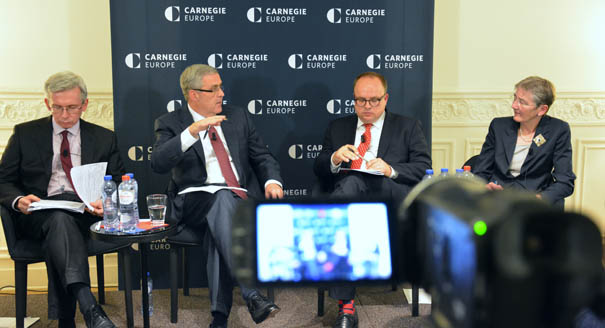Registration
You will receive an email confirming your registration.
The members of NATO pledged in 2014 to increase their defense spending to 2 percent of their GDPs by 2024. It is unlikely that this goal will ever be reached by all 28 allies, and yet the 2 percent metric persists, as does European military dependence on the United States.
As a security vacuum in Europe grows, a wider, strategic question remains unanswered: Who is responsible for keeping Europe safe and free, and at what cost? In his latest paper, “The Politics of 2 Percent: NATO and the Security Vacuum in Europe,” Carnegie’s Jan Techau weighs the political significance of NATO’s 2 percent defense investment pledge for the future of the alliance.
Techau discussed these critical issues with Malcolm Chalmers, research director and director for UK Defense Policy at the Royal United Services Institute, and Douglas Lute, U.S. ambassador to NATO. Judy Dempsey, nonresident senior associate at Carnegie Europe and editor in chief of the Strategic Europe blog, moderated.
Video
Podcast
Malcolm Chalmers
Malcolm Chalmers is research director and director for UK Defense Policy at the Royal United Services Institute.
Douglas Lute
Douglas Lute is the U.S. ambassador to NATO.
Jan Techau
Jan Techau is the director of Carnegie Europe.
Judy Dempsey
Judy Dempsey is a nonresident senior associate at Carnegie Europe and editor in chief of the Strategic Europe blog.
